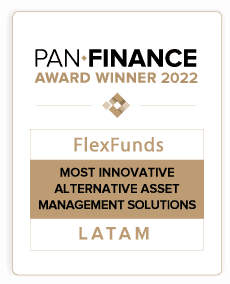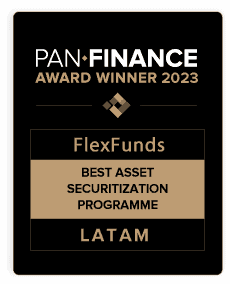In the investment world, capital is dynamic, and the sources of both supply and demand are constantly changing. Investors and expert advisors are aware of how these flows fluctuate, and their role is to anticipate such movements to try to monetize them. What follows is an account of how the international fund market has evolved and its dynamics have impacted global finance.
The introduction of diversification
Massachusetts Investors made the invention of the first open-end mutual fund in 1924. Looking back, we can say that this was not an easy task as it involved demonstrating that riskier assets could reduce the overall exposure of a portfolio. While the concept may seem counterintuitive, this simple idea developed an entire fund management industry. Mutual funds became the primary vehicle. A whole network of asset managers, platform providers, brokers, advisors, and investment custodians emerged whose role was to meet all clients’ demands, whether they were the most significant asset owners or even the most minor retail investor.
The aim was for everyone who could be an investor to enjoy the benefits of having a diversified portfolio.
Portfolio expense control
The second phase of modern finance began in 1975 with two significant developments: the index fund and the ETF. The invention of the index fund, the First Index Investment Trust, was launched by Jack Bogle and Vanguard Group.
Subsequently, the exchange-traded fund (ETF) prompted the second research stage when State Street Global Investors introduced the S&P 500 SPDR in 1993. This first ETF offered a low-cost way to invest in the world’s most liquid and recognized U.S. stock index.
Many other index funds followed, with around $ 5 trillion in assets held in ETFs by the end of 2020.
Past performance is no guarantee of future results
“Past performance is no guarantee of future results” is generally considered a warning label and is part of the compliance process for any financial advisory. In this case, it should apply to both the end investor and the asset manager. We cannot assume that an investment will continue to perform in the future simply because it performed well in the past. But the phrase also contains a second meaning for potential investment opportunities: don’t dismiss an investment simply because it did not perform well recently, as it could improve.
To say that the stock market performance of the past ten years for U.S. stocks has been anything less than extraordinary would be an understatement. Now, in 2020 the recent Covid-19 crisis caused an unexpected increase in uncertainty levels and a rapid fall in asset prices in the equity and credit markets. Some market players rushed for cash by selling relatively safe and liquid assets, while central banks and certain types of money market funds stepped in to counter outflows from the $481 billion global fixed income fund sector.
Money market funds, which are generally less exposed to credit risk, were also affected. In particular, U.S. prime money market mutual funds faced several weeks of large redemptions. At the same time, the market liquidity of securities held by fixed income funds deteriorated substantially.
According to the International Monetary Fund, strong support from the international financial policy was necessary for daily flows to return to their pre-Covid-19 levels. However, the episode reignited a market debate about the financial stability emanating from the asset management industry. Funds that hold relatively illiquid assets but offer near-daily redemptions were highly vulnerable to runs. Emergency sales could have led to further declines in liquidity and asset prices in general if they were drastically affected.
Expectations
The pandemic reinforced that many investors prefer to keep their structured funds with instruments focused on the U.S. market. The business outlook in other international markets is considered less reliable than growth in the U.S.
However, considering that the world’s significant population growth will occur outside of North America in the coming decades, the economic expansion of this century will be led by new industrialization in relatively undeveloped areas of Asia.
More than a few financial companies will contribute to and benefit from the growth in both India and China over the next decade. An excellent example to follow could be the Nifty Financial Services 25/50 Index, which tracks India’s top 20 financial services companies, with an average annual growth rate of 18.8% since its inception in 2004.
While it is impossible to predict the future, the factors that have led to the outperformance of asset managers over the past few years it is estimated may continue doing over the next decade. It is up to investors and financial advisors to broaden their lens to identify the new international funds that are beginning to show muscle in other latitudes. Capital is migrating in search of new opportunities, higher returns, and no investor should be indifferent to this.







